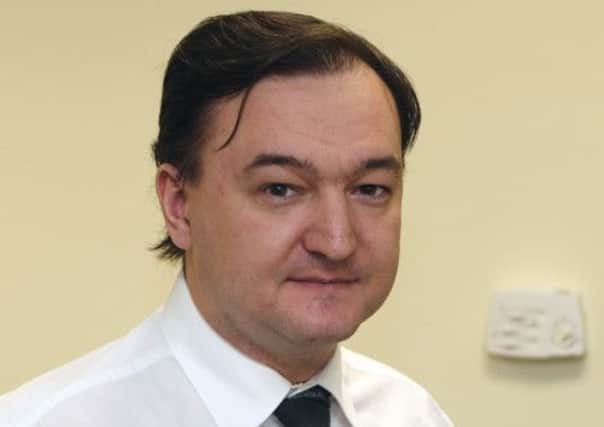Russian court finds deceased whistle-blower guilty


The court also convicted Magnitsky’s former client William Browder, a Briton who has led an international campaign to expose corruption and punish Russian officials he blames for Magnitsky’s death in 2009.
Browder, tried in absentia, was sentenced to nine years’ jail in the case which deepened US and European Union concerns over human rights and the rule of law in president Vladimir Putin’s Russia.
Advertisement
Hide AdAdvertisement
Hide Ad“Today’s verdict will go down in history as one of the most shameful moments for Russia since the days of Josef Stalin,” Browder, who is unlikely to be extradited from Britain to Russia, said in a statement.
Amnesty International called Magnitsky’s prosecution – Russia’s first posthumous trial – “deeply sinister,” saying it “set a dangerous precedent that could open a whole new chapter in Russia’s worsening human rights record”.
The European Union said the trial sent “a disturbing message to those who fight corruption in Russia”.
Russian authorities said they pushed ahead with the posthumous trial in order to ensure justice was done.
Prosecutors had accused Magnitsky and Browder of failing to pay 522 million roubles (£10.5m) in taxes.
Magnitsky died after a year in jail during which he said he was mistreated and denied medical care in an effort to get him to confess to tax evasion and give evidence against Browder, the head of investment fund Hermitage Capital Management.
The Kremlin’s human rights council has said there was evidence suggesting Magnitsky, 37, was beaten to death.
Mr Putin has dismissed allegations of torture or foul play and told the nation last year that he died of heart failure.
Advertisement
Hide AdAdvertisement
Hide AdA judge threw out a case against a senior prison official, the only person to face trial over Magnitsky’s death, after Mr Putin signalled that Russian authorities should not be blamed.
“Mr Magnitsky has been declared a criminal on the basis of unconvincing evidence, while neither the corruption scandal he uncovered nor the circumstances of his death have been clarified,” Maja Kocijancic, spokeswoman for EU foreign policy chief Catherine Ashton, said.
“This is a revealing illustration of the state of the rule of law in Russia,” she said, adding that the EU was “raising the Magnitsky case with the Russian authorities at all levels”.
After lobbying by Browder, the US Congress passed the Magnitsky Act, which bars Russians believed to have been involved in his death or other severe human rights abuses from entering the United States.
Mr Putin, who accuses the US of using human rights concerns as a pretext to meddle in Russia’s affairs, retaliated by imposing similar measures on Americans and also barring US couples from adopting Russian children.
Browder, whose fund was once the largest investor in Russian equity markets, says Magnitsky’s arrest was engineered by the same police and tax officials he had implicated in an alleged theft through fraudulent tax refunds.
Passing judgment on the dead
RUSSIAN law allows the trial of the deceased under the principle that a dead defendant’s relatives should have the opportunity to seek to clear the departed’s name.
Cases in other countries have had different pretexts:
• POPE FORMOSUS: The Catholic cleric had long been involved in internecine church disputes and jockeying for power. One of his predecessors, John VII, accused him of conspiring with others to take the papacy. Formosus was elected pope in 891 and served until his death in 896, but the quarrels had festered. His successor revived the charges and ordered that Formosus’ corpse be exhumed and brought to the papal court for judgment. It was found guilty.
Advertisement
Hide AdAdvertisement
Hide Ad• MARTIN BORMANN: Bormann, the personal secretary to Adolf Hitler, was tried in absentia at the Nuremberg tribunal in 1946 and sentenced to death. In 1972, bones were unearthed in Berlin that were identified as Bormann’s. He had committed suicide as the Russians closed on Berlin in May 1945.